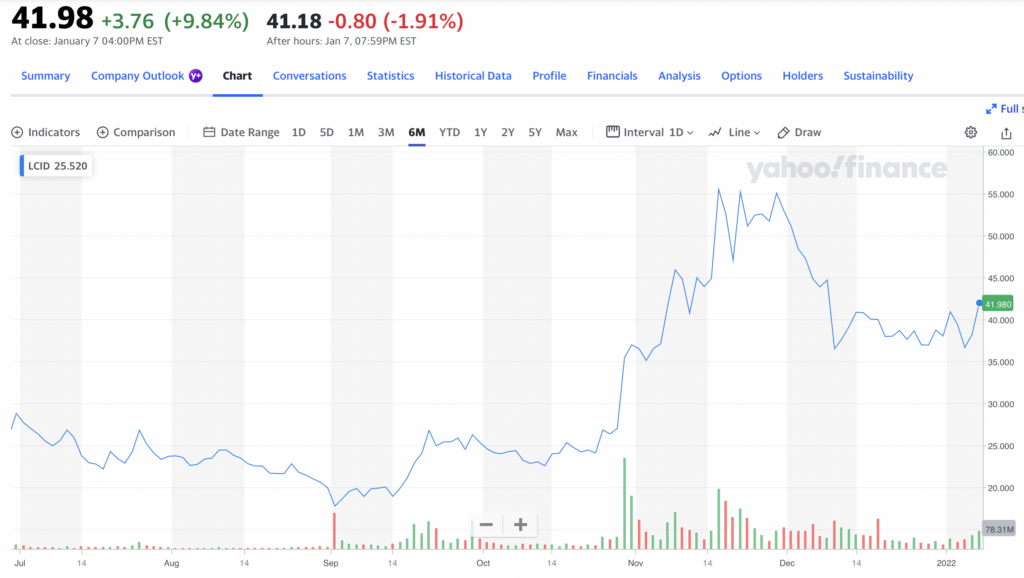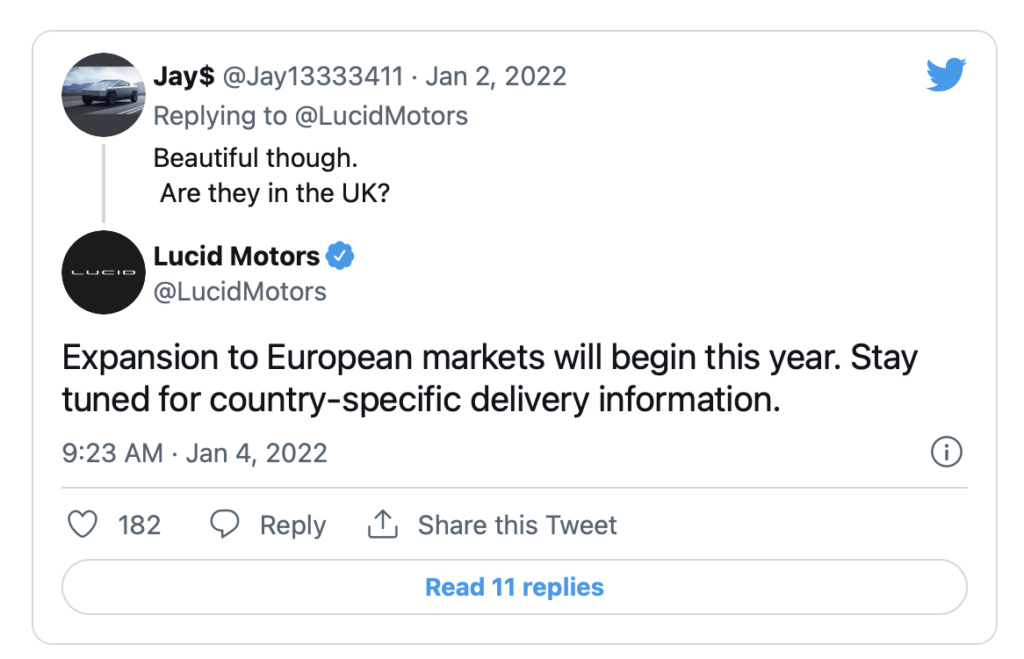Like many development-stage, high valuation stocks, Lucid Group, Inc. (NASDAQ: LCID) has pulled back significantly from its November 2021 highs. In Lucid’s case, it is down 35% from its $64.86 peak, but still carries a stock market valuation of about US$69 billion.
Lucid shareholders face a key trading date on January 19, 2022. That date marks 180 days after the company’s SPAC deal closed on July 23, 2021, and according to Lucid’s bylaws, the lock-up period precluding sales by early holders of Lucid’s Class A common stock ends upon completion of a 180-day span. So, in just over a week, those shareholders, many of which have enormous paper gains, will be able to freely sell their shares.
Importantly, the sovereign wealth fund of Saudi Arabia which owns slightly more than 1.0 billion of Lucid’s 1.65 billion common shares, would be eligible to sell stock beginning January 19 but has indicated no interest in doing so.
Stocks which have performed well after they became publicly traded have frequently, though not in every case, experienced marked pullbacks beginning in the few days running up to the lock-up expiration date.
Lucid has not been immune from this phenomenon. On September 1, 2021, the lockup period for Lucid shares purchased for US$15 per share in a US$2.5 billion PIPE (private investment in public equity) expired. While other factors may have also been at play, Lucid’s stock fell more than 22% from August 24, 2021 (closing price of US$22.83) to September 1, 2021 (close price of US$17.79). Note too that the number of shares which became free to trade on September 1, 2021 was about 167 million (US$2.5 billion divided by US$15), far fewer than the amount that becomes free to trade on January 19.

Separately, Lucid shares rallied nearly 10% on January 7, closing at US$41.98. The rally may be traced to a Tweet on the company’s official account saying the company planned to begin shipping cars to Europe in 2022. While not new news — the company had previously said it planned to deliver cars in Europe and the Middle East in 2022, and in China in 2023 — the announcement triggered a reflex rally. Lucid vehicles are not expected to be sold in the UK in 2022, possibly because right-hand drive cars are the rule in that country.

Lucid has not disclosed any new developments regarding the U.S. Securities and Exchange Commission’s (SEC) investigation into the company. Announced December 6, 2021, the probe appears to be related to its SPAC merger with Churchill Capital Corp. IV and “certain projections and statements” related to that transaction. The merger agreement was announced in February 2021, and, as noted above, the SPAC merger closed in late July 2021.
Like many electric vehicle (EV) companies which came public via a SPAC process, Lucid issued what seem to be quite optimistic financial projections. From a negligible revenue and vehicle production base in 2021, the company estimated it would generate US$2.9 billion of EBITDA and US$1.5 billion of free cash flow in 2026.
By most traditional valuation measures, Lucid looks expensively valued — a US$64 billion enterprise value despite de minimis lifetime revenue and little chance of achieving profitability or positive cash flow for many years. It is possible then that many shareholders may begin to sell over the next few days in anticipation of the January 19 lock-up expiration.
Lucid Group, Inc. last traded at US$41.98 on the NASDAQ.
Information for this briefing was found via Edgar and the companies mentioned. The author has no securities or affiliations related to this organization. Not a recommendation to buy or sell. Always do additional research and consult a professional before purchasing a security. The author holds no licenses.









